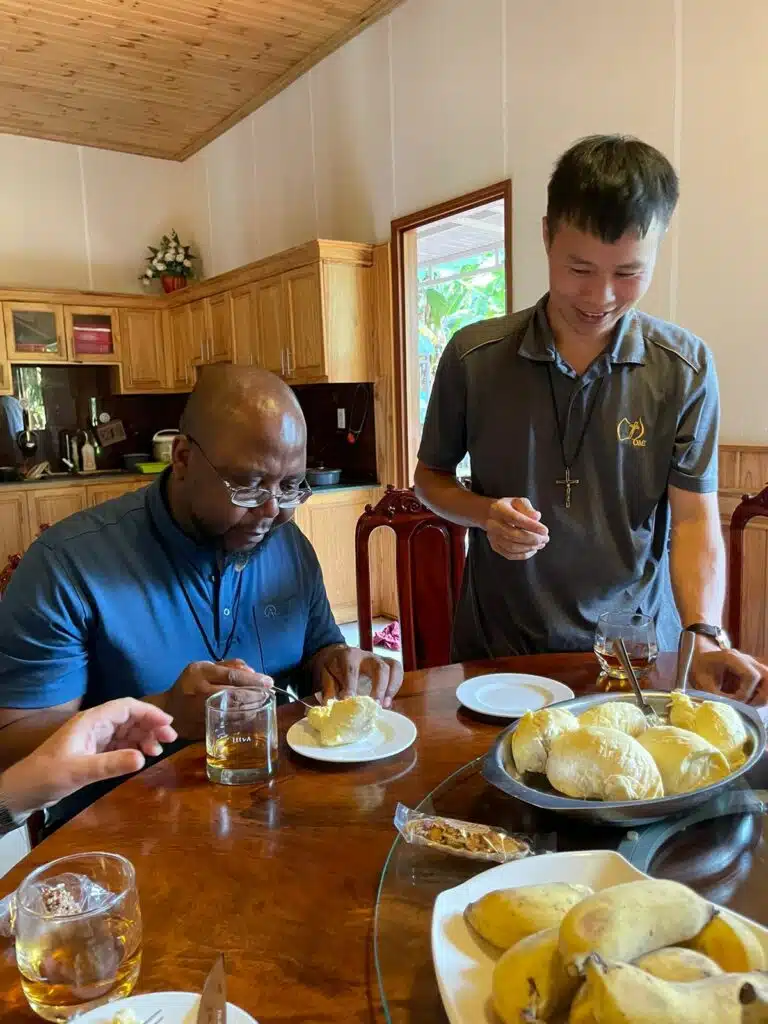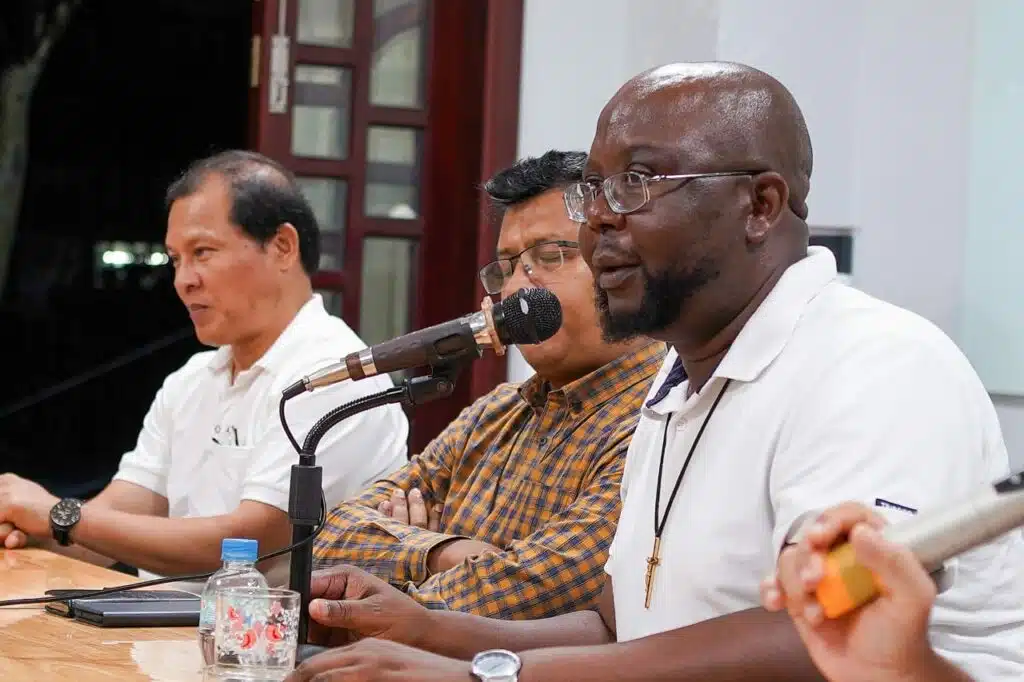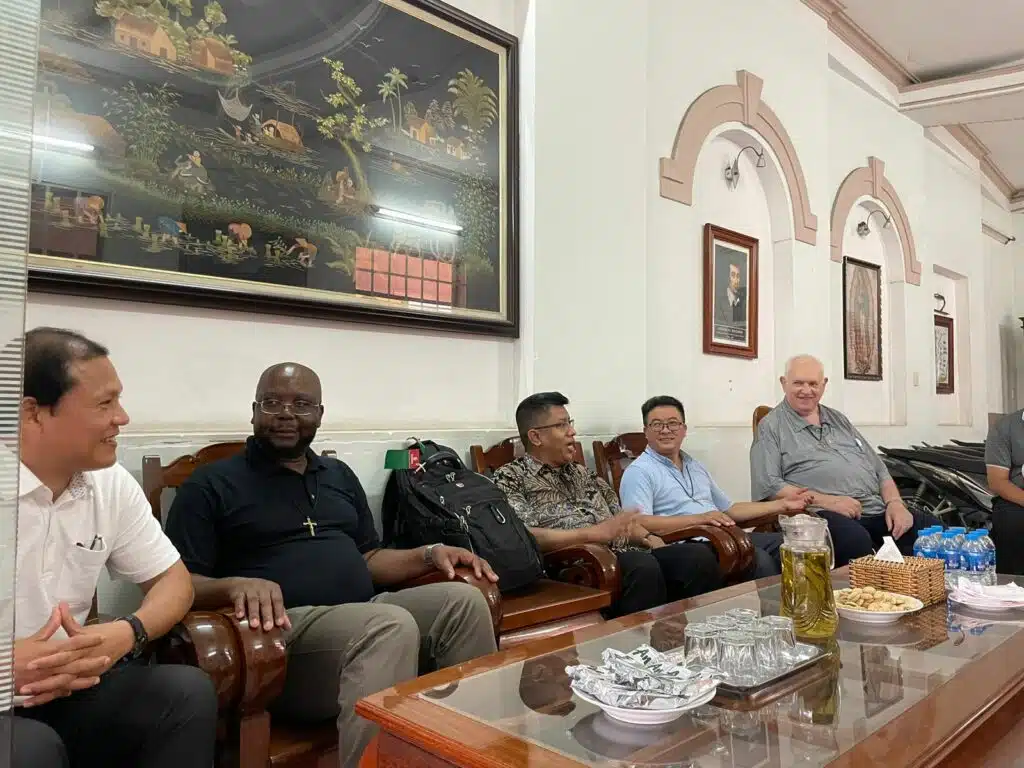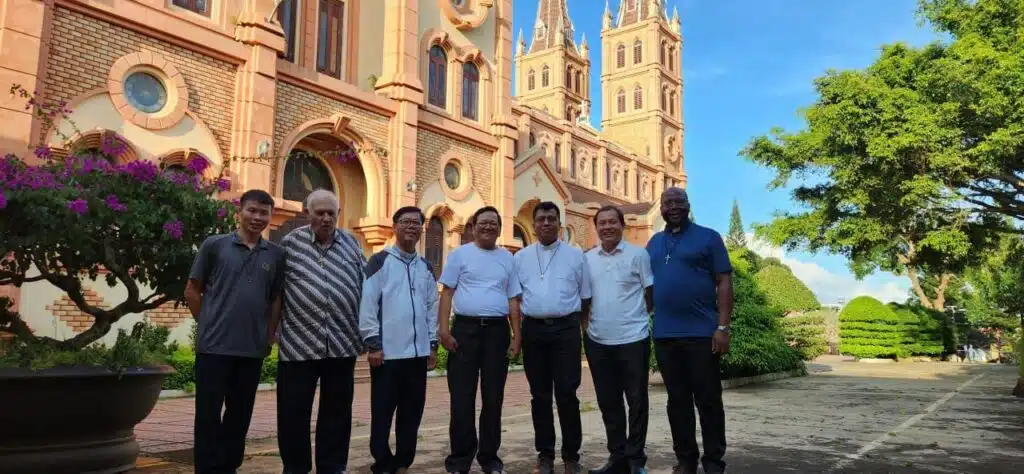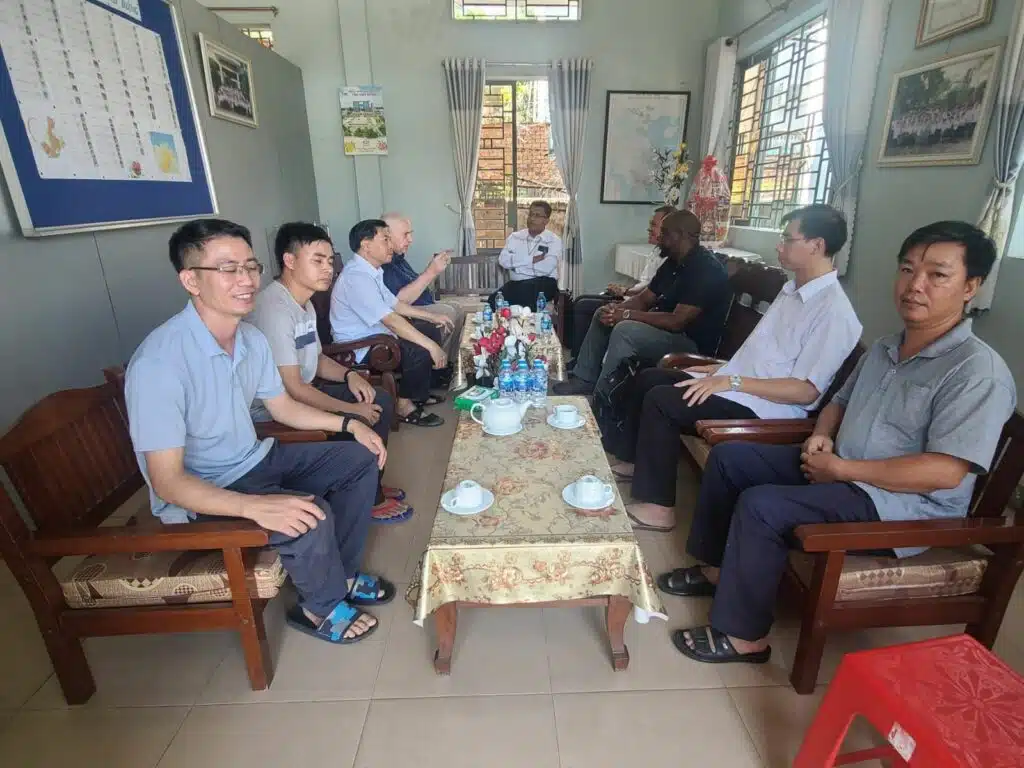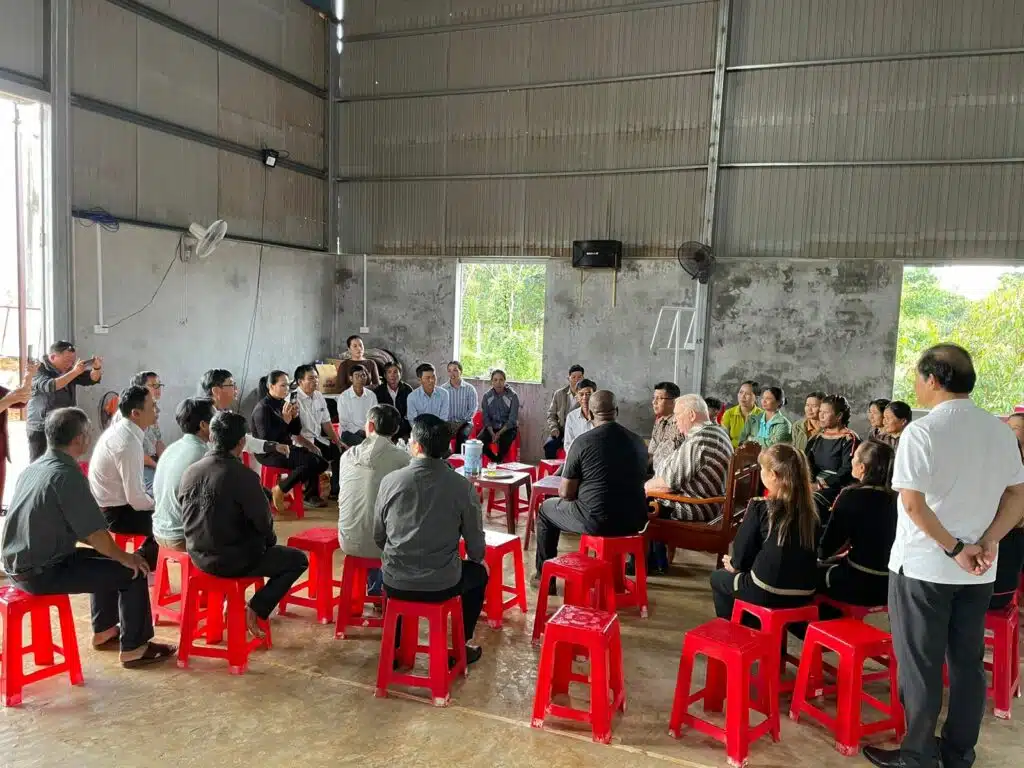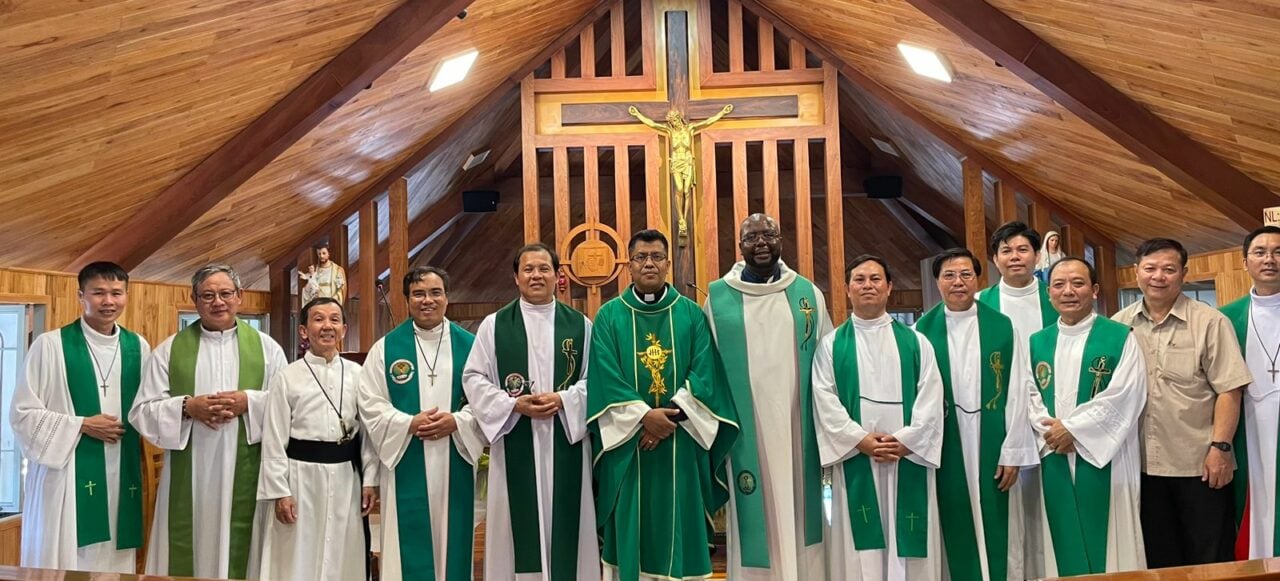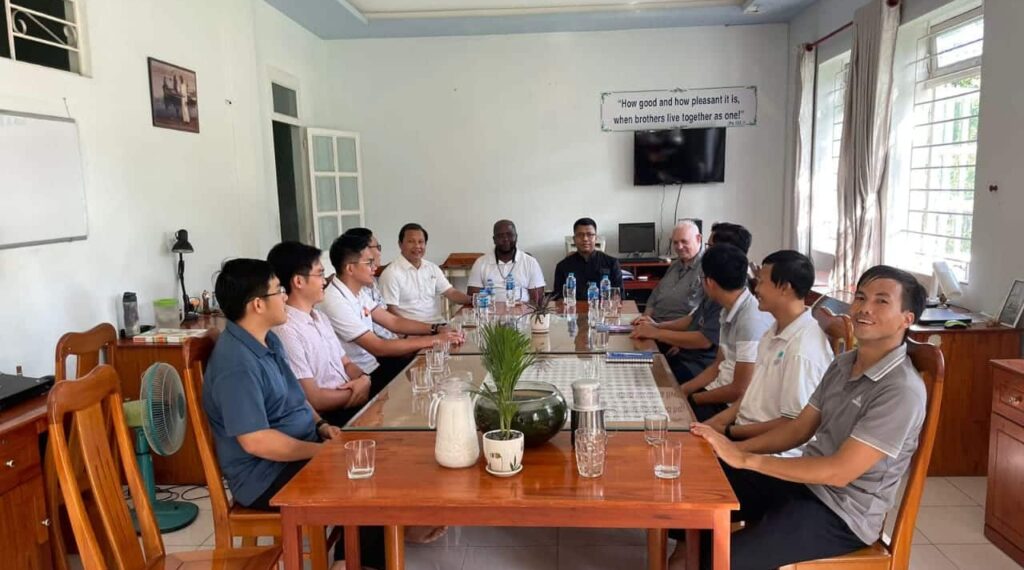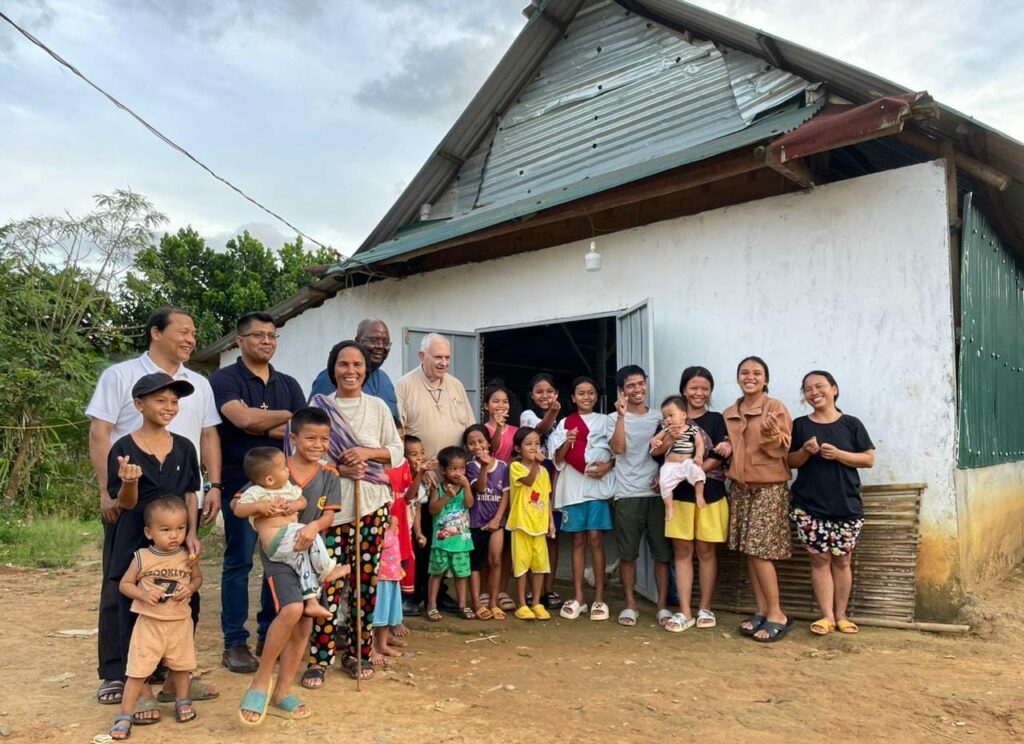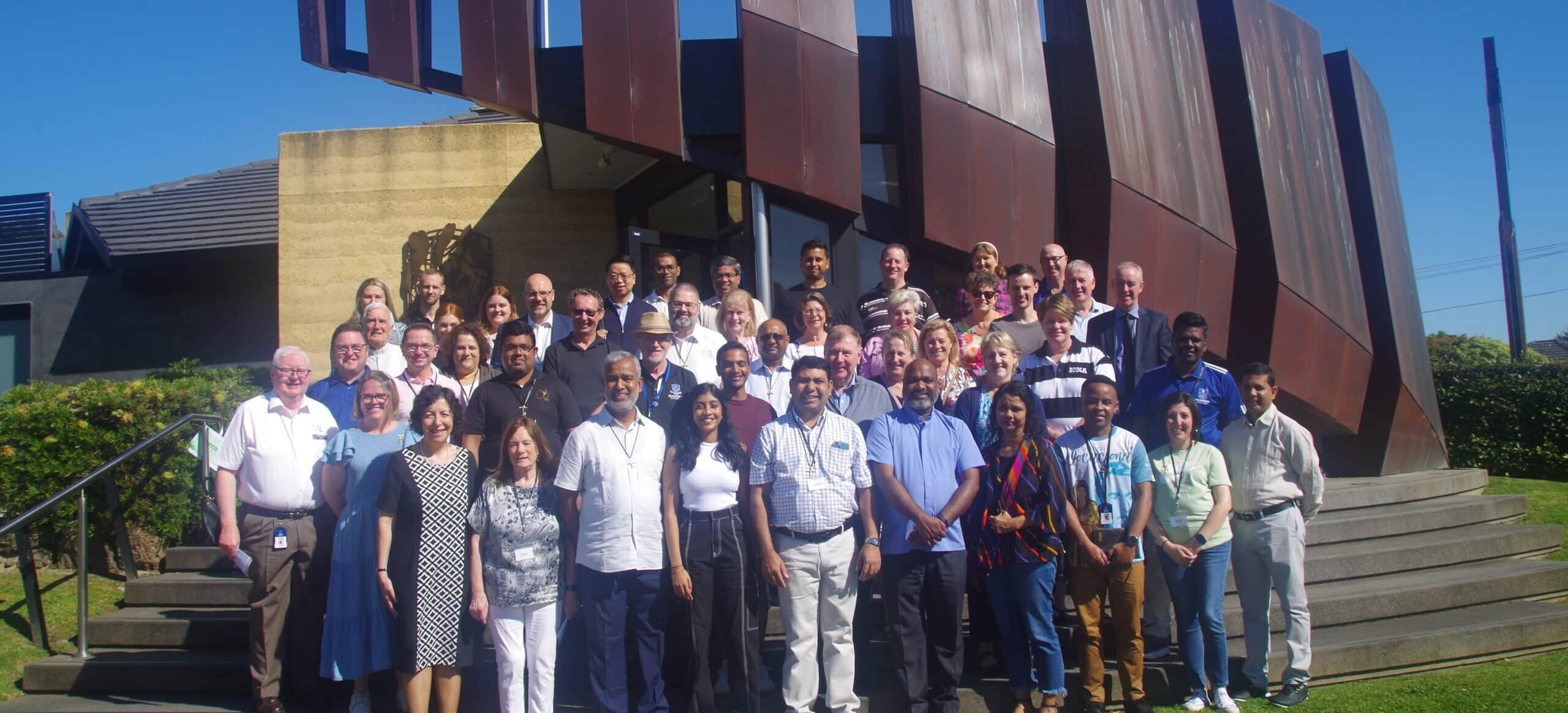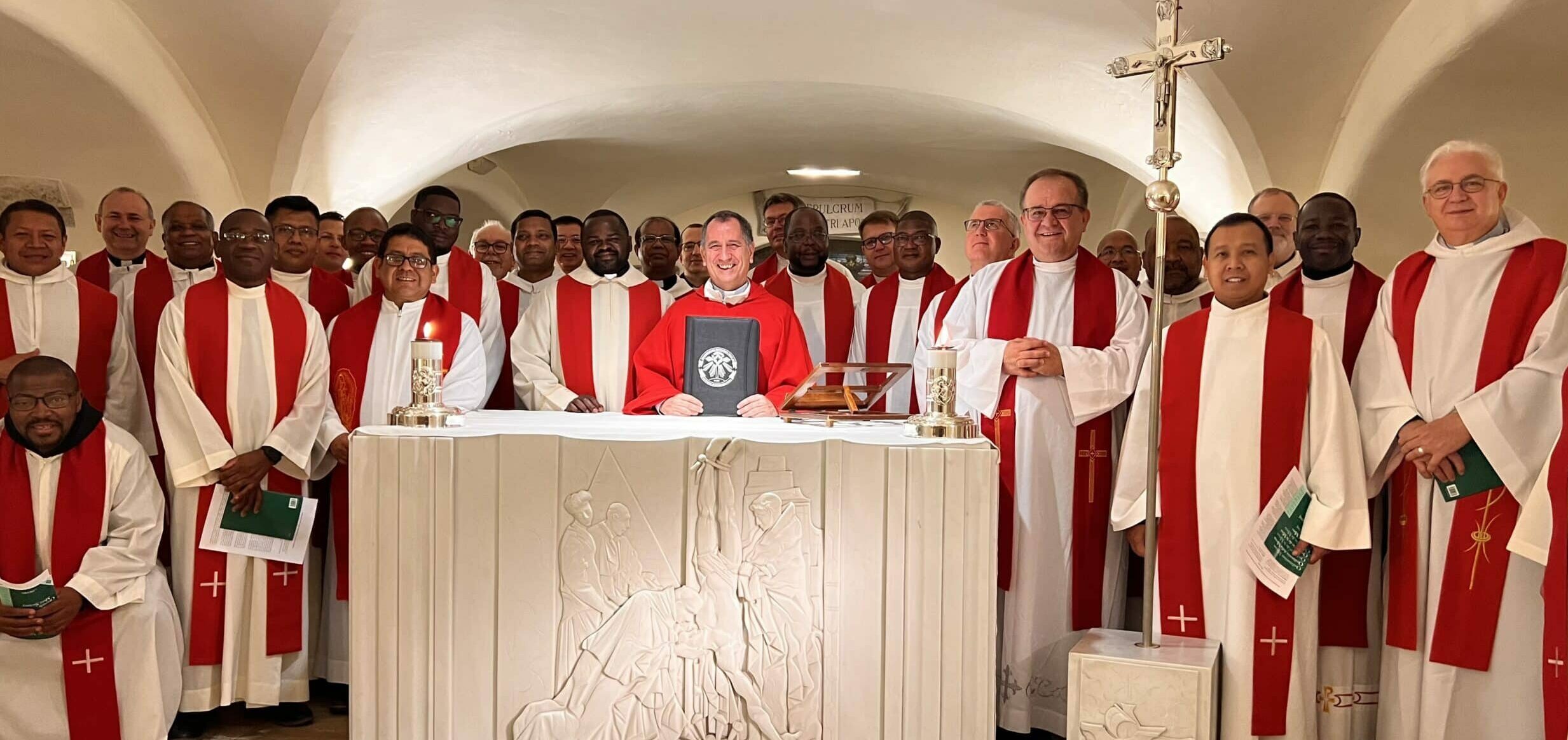Raymond MWANGALA, OMI
Assistant General (Mission)
November 2 – 15, 2023, Raymond MWANGALA and Eugene BENEDICT visited the Oblate Delegation in Vietnam, it was a fraternal visit intended to introduce the General councillors to the Delegation and to strengthen the bonds of unity between the Oblates of the Delegation and the rest of the Congregation.
I, Fr. Raymond MWANGALA, First Assistant General, together with Fr. Eugene BENEDICT, General Councillor for the Asia-Oceania region recently visited the Delegation of Vietnam for 2 weeks, November 2 to 15, 2023. This was the first visit to the country for both of us. It was a fraternal visit intended to introduce us to the Delegation and to strengthen the bonds of unity between the Oblates of the Delegation and the rest of the Congregation, represented by the Superior General and his council.
We were met on our arrival at the Tan Son Nhat International airport, in Ho Chi Minh City (formerly Saigon) by Fr. Antoine Binh Xuan Hung, the Delegation Superior, in the company of Fr. Roland Jacques, and 2 other Oblates. Roland served as our translator and Antoine and the Delegation Secretary, Antoine Nguyen Van Nghieu, were our constant companions throughout our stay.
Vietnam is a country which is under the rule of a Communist Government
Vietnam is a country which is under the rule of a Communist Government. Religious activities, including the ministries done by the Oblates, must receive State authorization. Poverty levels are very high and noticeable, especially among the migrant populations who have moved from the high lands into the cities. About 10% of the population is considered ethnic minorities. These minorities also suffer high levels of poverty. The Oblates serve among some of this population.
The cities seem overcrowded with people on motor bikes and buildings erected close to each other. The countryside, on the other hand, is spacious with plenty of green all over. The people were overly friendly and generous. Everywhere we went we were treated with much generosity both among the Oblates and by strangers alike.
Participation in religious activities is high. Many Catholic churches and religious congregations and orders visible in Vietnam, even though Catholics are only about 7% of the population. A noticeable feature of the population is the support offered to the Church, including to the Oblates. We visited several churches which were constructed in the last 10-20 years or which are still under construction.
There is a strong social support for the religious vocation in the country
On Sunday, November 5, we met with the Bishop Joseph Tuoc in Phu Cuong. He spoke highly of the Oblates and their ministry. According to the November 1, 2023, Pictorial Personnel of the Delegation, the Delegation has 77 members who have completed initial formation, 54 scholastics, 7 novices and 8 prenovices. The Delegation also has a residential Come and See program. This year, 2023, there are 15 candidates who are accompanied by 3 Oblates.
The Delegation has 4 houses of formation, a Come and See house, Prenovitiate, Novitiate and post-Novitiate house. Due to the high number of candidates in the post-novitiate phase of formation, the community lives in 2 separate houses. However, they remain one community and have daily prayers, meals and meetings in common. Many of the Oblates we met have learnt some English or French and some are even fluent in these European languages.
The Delegation has 7 Brothers, some of whom are above the age 60 and others are younger. 1 Brother is a superior of a local community, another is a formator at the novitiate, 1 is responsible for hospitality at the Central House, 2 work at the orphanage, 1 is involved in missionary work and another doing professional studies.
Visiting Oblates and formation houses of the Delegation
We spent the first part of our visit visiting the formation houses of the Delegation. On Monday, November 7, we began visiting the different ministry sites. Our first stop took us to Kontum Community. Here, the 5 Oblates serve mainly indigenous populations. We were able to visit 3 of the Mass centres. The communities served by the Oblates are characterized by high levels of poverty. The Oblate community has welcomed 24 primary school children, offering them accommodation, food, and religious education while they attend school. During our meeting with the community, they shared with us the joys and the challenges of doing ministry in this highly controlled environment. A new community house is under construction about 5 kms away from the present house.
We spent most of November 7, travelling, by road and by plane, to the mountain country in the north. We arrived at the Ben Den community in the late afternoons, after more than 9 hours of travel. Here, we were met by the community of 8 Oblates (6 priests, 1 deacon and 1 scholastic). Together, we celebrated Mass, shared a meal and had a meeting at which they shared with us their ministry. Several things stood out from the visit to this community: the sense of community as the place of ministry; commitment to serve the minorities, especially the Hmong; works of charity; cooperation with associates; working with the local clergy. As previously noted, religious activities in Vietnam are tightly controlled by the government. All pastoral activities must have prior approval of government and diocesan authorities, limiting what can be done.
Meeting with Lay Associates
Throughout our visit, we met with some of the Lay Associates who work closely with the Oblates. We continued with visits to the communities which the Oblates are serving for several days, going through potholed roads and mountain trails. On November 14, we concluded our visits at the OMI Orphanage in Saigon. Here, the Oblates look after 82 children between the ages of 4 and 16, from poor family. Their dwellings are simple, in the middle of high-density area.
At the end of our visits, we had a debriefing meeting with the Delegation Superior and his council. In the morning of November 15, we participated in a Mass of Thanksgiving for the recently ordained Fr. Joseph Martin Vuong. This was followed by a festive meal.
My predominant emotion after the visit is gratitude – gratitude for the hospitality of some many who went out of their way to make us feel at home, gratitude also for the fruitfulness of the Oblate vocation in this land of many contrasts.
Vietnam is a land of mission, and the Oblates are missionaries among some of the poorest and most abandoned. St. Eugene de Mazenod would be proud of his sons in Vietnam!
